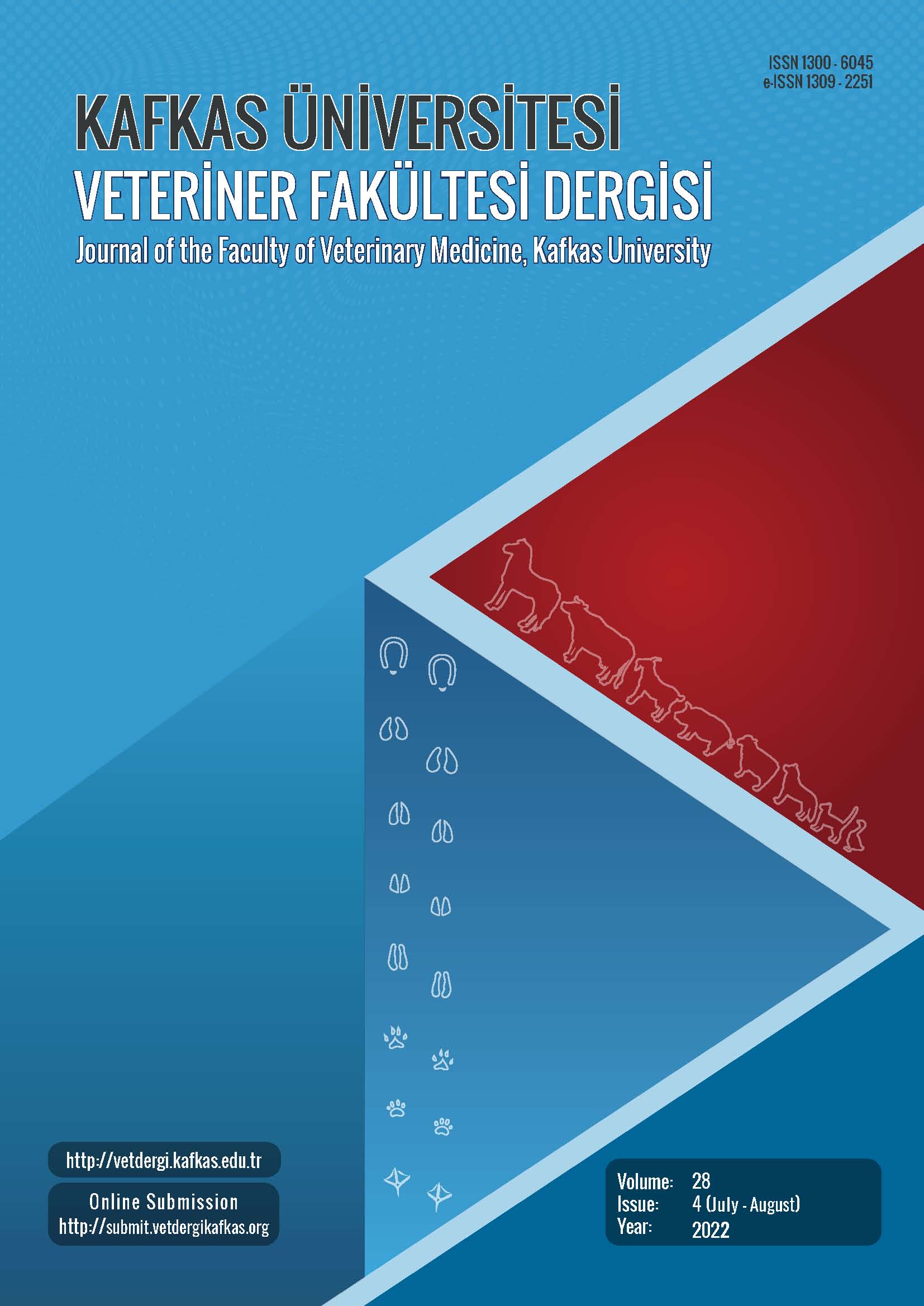
This journal is licensed under a Creative Commons Attribution-NonCommercial 4.0 International License
Kafkas Üniversitesi Veteriner Fakültesi Dergisi
2022 , Vol 28 , Issue 4
Usnic Acid Reduces Colon Cancer Cell Viability and Colony Formation by Aff ecting Cancer Cell Metabolism
1Department of General Surgery, Faculty of Medicine, Kafk as University, TR-36300 Kars - TÜRKİYE2Department of Physiology, Institute of Health Sciences, Kafk as University, TR-36300 Kars - TÜRKİYE
3Department of Bioengineering, Institute of Natural and Applied Sciences, Kafk as University, TR-36300 Kars - TÜRKİYE
4Department of Pathology, Faculty, Kafk as University, TR-36300 Kars - TÜRKİYE
5Department of Molecular Biology and Genetics, Faculty of Science and Letters, Kafk as University, TR-36300 Kars - TÜRKİYE
6Department of Bioengineering, Faculty of Engineering and Architecture, Kafk as University, TR-36300 Kars - TÜRKİYE DOI : 10.9775/kvfd.2022.27647 Today, some natural and plant-based products are of great interest, at least as supplements, in cancer prevention and treatment due to their anti-cancer properties. One of them is usnic acid, which is a secondary metabolite synthesized by the polyketide pathway in Usnea lichen species and is a promising agent for cancer treatment. In this study, the eff ects of usnic acid on cell proliferation, colony formation, and cancer metabolism-related Sirtuin 2 (SIRT2) and lactate dehydrogenase (LDH) enzymes in COLO-205, a colon cancer cell line, were investigated. COLO-205 cells were exposed to three diff erent doses of usnic acid: 15 μM, 30 μM, and 60 μM for 24 h. Usnic acid treatment reduced colon cancer cell viability at a dose dependent manner. Highest dose of usnic acid treatment (60 μM) decreased cell viability by about 40%. It has been determined that a 15 μM dose of usnic acid reduces cell viability by about half, and a dose as low as 1 μM reduces the colony-forming abilities of cancer cells by about half. It has been determined that usnic acid reduces the anti-cancer eff ect seen in this cell line, at least in part, by altering SIRT2 and LDH protein expressions, thus aff ecting cancer metabolism Keywords : Cancer, Cell culture, Colon, LDH, SIRT2, Sirtuin










